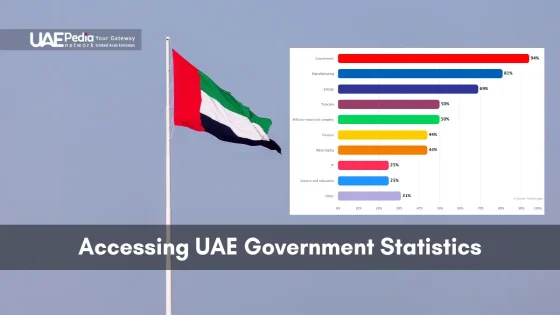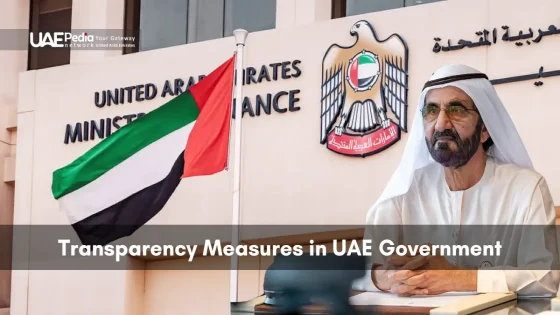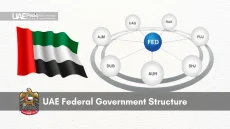The United Arab Emirates (UAE) is leading in using data for decisions. It has a strong legal base and plans to share public info. But how do people, researchers, and businesses use this data? Let’s explore how to get into the UAE’s open data and find new insights.
Getting government data is key, and the UAE is doing well. The Federal Authority for Government Human Resources (FAHR) says the UAE wants to share data widely. It wants to help everyone, from developers to media, by making data easy to find.
UAE’s Open Government Data Framework
The UAE has a plan to grow the economy and improve services. It wants to be more open and share information better. This includes new laws and a Smart Data Strategy.
Legal Framework and Data Protection Laws
The UAE has strong laws for data protection. For example, Dubai has a Data Law. These laws help keep data safe and private.
Smart Data Strategy Implementation
The UAE wants to make government data useful. It has a Smart Data Strategy. This includes rules for using and sharing data wisely.
Data Management Policies Across Emirates
Every Emirate has its own data plans. Abu Dhabi and Dubai have their own rules. These rules help keep data safe and make good decisions.
The UAE wants to use data to make better decisions. It aims to be a leader in open and honest government.
Accessing UAE Government Statistics Through Official Portals
The United Arab Emirates has set up many official data portals. These portals give easy access to government stats and info. They are for researchers, experts, and the public, with lots of data, visuals, and reports.
The Bayanat portal is the main data hub for the UAE. It has lots of stats and data in areas like health, education, economy, and environment. You can see interactive dashboards, get raw data files, and ask for special data.
The UAE SDG Data Hub focuses on the Sustainable Development Goals (SDGs). It has data, stories, initiatives, and surveys. This lets users see how the UAE is doing on sustainable development.
The DubaiPulse portal has lots of Dubai data. It covers things like infrastructure, transportation, and economy. It’s for many people, like policymakers, planners, entrepreneurs, and researchers.
Each federal entity in the UAE also has its own data site. They offer open access to specific stats, reports, and publications. For example, the Ministry of Community Development website has lots of data on community development.
| Portal | Focus | Key Features |
|---|---|---|
| Bayanat | National-level data |
|
| UAE SDG Data Hub | Sustainable Development Goals |
|
| DubaiPulse | Dubai-specific data |
|
These UAE data portals are great for anyone wanting to explore government stats and data. They have national, regional, and sector-specific info. These platforms are full of valuable data for research and decision-making.
Dubai Law No. 26 of 2015 mandates imprisonment for unauthorized disclosure of government data – researchers must verify access rights before using sensitive datasets Ref.: “Dubai Judicial Institute (2023). UAE Data Protection Legislation Guide. Government of Dubai.”
Key Data Sources and Statistics by Sector
The United Arab Emirates (UAE) is working hard to share data openly. This helps everyone understand the country better. It covers social, economic, and environmental areas.
Health and Education Statistics
The Ministry of Health & Prevention (MoHAP) shares health data. This includes diseases, healthcare, and patient results. The Ministry of Education gives stats on schools, like who goes and how they do.
Economic and Financial Data
The Ministry of Finance has economic data. You can find budgets, market reports, and more. It helps show how the UAE’s economy is doing.
Environmental and Social Statistics
The Ministry of Climate Change and Environment has environmental data. It includes air, water, and animals. The Ministry of Community Development shares social data. This includes people with special needs and community help.
The United Nations Statistics Division also shares global data. It covers topics like farming, schools, energy, and tourism. This data is for the Gulf, United Arab, Persian, and Arabian areas.
The UAE wants to share data openly. This helps people, researchers, and leaders make good choices. It supports growth in the Gulf, United Arab, Persian, and Arabian region.
Conclusion
The United Arab Emirates has made big steps in sharing government data and stats. They use a strong open data system and many official websites. This helps everyone make better choices and grow the economy.
They share lots of statistical information in areas like health, education, and the environment. This shows they really care about open government and using data to improve things.
People like researchers and policymakers can use these UAE government data to learn a lot. They can help the UAE keep growing and getting better. The UAE’s digital setup is top-notch, with over 6,000 services online.
The UAE is a leader in data transparency and digital change. They keep working hard to make sure everyone has access to important information. This helps the UAE stay ahead in innovation and progress.



















